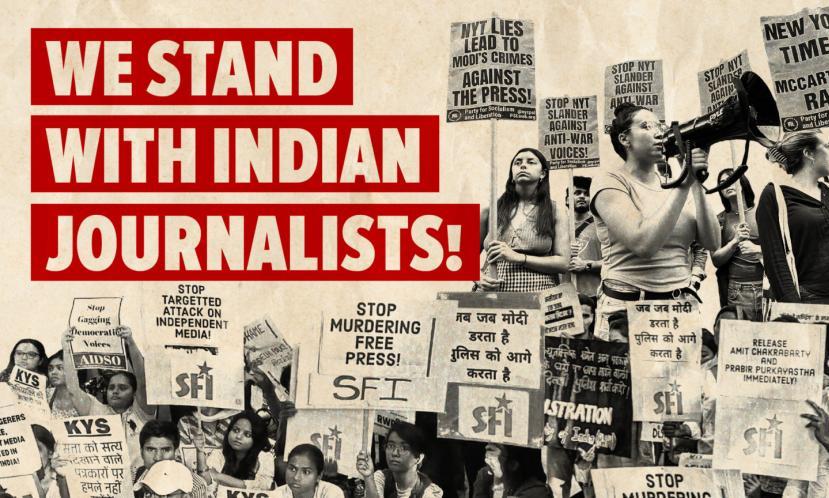
NewsClick arrests: New York Times condemns using its report to silence journalists
text_fieldsNew Delhi: The New York Times, whose report on the alleged ‘Chinese propaganda’ led to the raids and arrests of journalists and activists linked to NewsClick, has condemned any attempt by governments to silence journalists based on their reporting.
In response to an article on Scroll by Kavita Krishnan, The New York Times' spokesperson said in a statement that “Independent journalism follows the facts where they lead. We published a thoroughly reported story showing the network’s ties to Chinese interests. We would find it deeply troubling and unacceptable if any government were to use our reporting as an excuse to silence journalists.”
Krishnan, who was approached by the Times for comments on allegations against NewsClick, declined, expressing concern that her quote might exacerbate the persecution of NewsClick journalists.
In her recent article, Krishnan contends that the government is now leveraging the NYT's story to equate journalism with terrorism. She questions why the newspaper did not challenge the alleged misuse of its story, raising critical inquiries about the evolving situation surrounding the raids and arrests conducted by the Delhi Police.
The New York Times had reported that NewsClick received funds from a network linked to American tech millionaire Neville Roy Singham, accused of spreading Chinese propaganda globally. Less than two weeks after the report, the Delhi Police filed a case under the anti-terrorism law, leading to the raid and arrests.
NewsClick denies the allegations, stating that it operates independently and does not take directions from Singham. The news organization claims that all its funding is transparent, following proper channels and reporting requirements. It calls The New York Times article "motivated and bogus" and accuses it of being used to invoke the draconian UAPA (Unlawful Activities Prevention Act) to stifle independent voices.






















